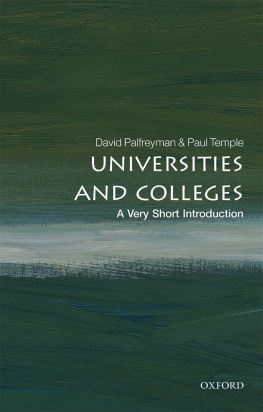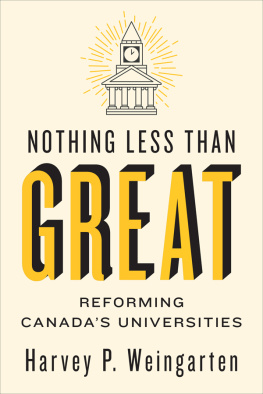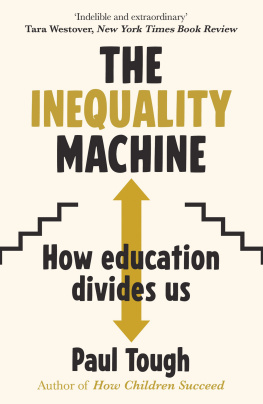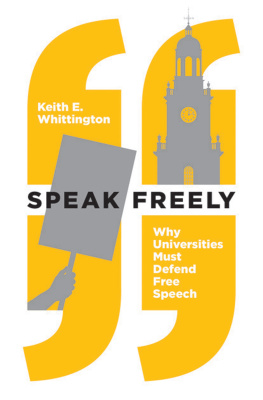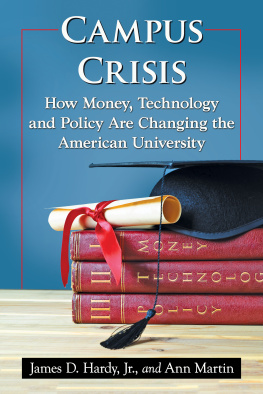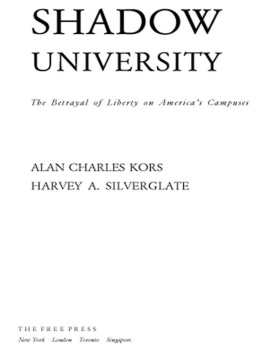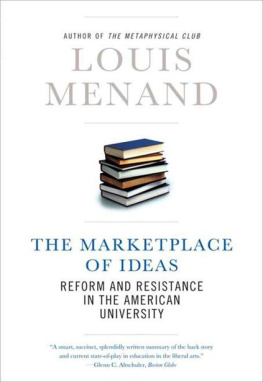
THE SHADOW UNIVERSITY
The Betrayal of Liberty on Americas Campuses
ALAN CHARLES KORS
HARVEY A. SILVERGLATE


THE FREE PRESS
A Division of Simon & Schuster Inc.
1230 Avenue of the Americas
New York, NY 10020
www.SimonandSchuster.com
Visit us on the World Wide Web:
http://www.SimonSays.com
Copyright 1998 by Alan Charles Kors and Harvey A. Silverglate
All rights reserved,
including the right of reproduction
in whole or in part in any form.
THE FREE PRESS and colophon are trademarks
of Simon & Schuster Inc.
ISBN 0-684-86749-4
eISBN-13: 978-0-6848-6749-6
TO ELSA AND ERIKA
CONTENTS
ACKNOWLEDGMENTS
This book is a far from exhaustive account of the betrayal of liberty on Americas campuses. Many times, faced with the need to reduce its size and to transform it from an encyclopedia to a humane text, we eliminated the narrative or even summary of several scandals in favor of a closer, longer look at a particularly revealing or representative case. Each of those instances hurt, because we wanted, among other things, to bear witness for the victims of unbearable oppressions and intrusions and to name for public obloquy their unjust tormentors. We hope that what has been lost in detail will be compensated for by an overall revealing and representative picture of unfairness and oppression that illuminates the deeper conditions of our colleges and universities.
The following individuals were extraordinarily kind, and, in some cases, quite courageous in assisting us. Some pointed us in the right directions and toward the right people; others opened their files and private lives to us; yet others provided invaluable assistance, advice, criticism, or welcome candor. If we thanked everyone who aided us, our list would be book-length, and some of those thanked would lose their jobs. Thus, with great admiration and warmth toward those unnamed here, we acknowledge our particular debt in these regards to Eden Jacobowitz, Thor Halvorssen, Greg Pavlik, Tim Monaco, Bob Chatelle, Kelly Mulroney, Debra (Cermele) Ross, Jordana Horn, Michael Cohen, J. Christopher Robbins, Dan Ben-Amos, Jeremy Chiapetta, Dana Gurwitch, Lindsey Kaser, Hal Pashler, Michael Bressler, Peter Chang, Goon Pattanumotana, Eric Tienou, James Aist, Michael Greve, Saul Steinberg, Hans Bader, Francis Randall, Joseph A. Watson, Dan Ritchie, Judith Kleinfeld, Jay Bergman, Norman Fruman, Bob Costrell, Jim DEntremont, Declan McCullagh, Michael Meyers, Andrew Good, Linda Seebach, Jeanne Baker, Gia Barresi, David Boaz, Philip Cormier, Jillian Earp Durand, Adam Dershowitz, Alan Dershowitz, Nathan Dershowitz, Sandra Fennell, the late Allen Ginsberg, Mike Godwin, Nat Hentoff, Virginia Postrel, Dorothy Rabinowitz, William Van Alstyne, Lincoln Herbert, Michael Itagaki, Eugene Volokh, Vivek Jain, Will Moynahan, Inati Ntshanga, David Rosenberg, Jolyon Silversmith, Richard Vigilante, Adam Bellow, Chauncey Wood, Devon Hincapie, Wendy Kaminer, Natasha Lisman, Eric Losick, Daffodil Tyminski, Roderick MacLeish, Jr., Gary Brasor, Brian and David LaMacchia, Philip Greenspun, Glenn Ricketts, Leroy and Tatum Young, Kenny Williams, Eric Johnson, Daphne Patai, Steven Shavell, Eric D. Blumenson, Ed Cutting, Leslie E. Jones, and Ryan Hanley.
In addition, we gratefully thank the legion of middle-level administrators at so many universities, who, fed up with the double standards and injustices of their institutions, sent us materials to document the betrayal of liberty that threatens both freedom and decency. We also gratefully thank the legion of students who not only told us their stories (which we would otherwise not likely have learned because of ubiquitous college confidentiality rules), but who went to such great lengths to document their claims. Special thanks are due our agent, Freya Manston, who understood and enthusiastically supported this project long before many others did, and our editor at the Free Press, Paul Golob, who has been a supportive, sensitive, activist editor in the old-fashioned tradition that is fast disappearing elsewhere in publishing. Monica Mehigan has supervised the mechanics of computerized production with efficiency and dedication. Most essentially, Erika Kors superintended and participated in revisions to and preparation of the manuscript through countless versions during several years, a labor that was absolutely vital to us, that comforted us, and that kept us organized at every stage. Elsa Dorfman contributed her numerous skills, spirit, and encouragement.
We of course should mention the fortuity of our having met in Princeton in September of 1960, each of us a freshman coming from New Jersey high schools whose graduates were eligible for a scholarship at Princeton endowed by a donor who had a chance connection to our respective schools. A lifetime friendship of mind and soul, formed then, has flowered into this long-planned collaboration. We are therefore thankful to the Fates as well.
Finally, this book simply could not have been written without the deep support of our wives, Elsa Dorfman and Erika Kors. Their love, their patience, their wisdom, their understanding, their encouragement, and, indeed, their herculean labors on behalf of this project were, again and again, our salvation. We wrote this book, in some significant measure, for the children whom we and our wives love more than lifeIsaac Dorfman Silverglate, Samantha Kors, and Brian Kors. May they continue to struggle for the liberty that is their human birthright.
Alan Charles Kors
Wallingford, Pennsylvania
Harvey A. Silverglate
Cambridge, Massachusetts
April 1998
INTRODUCTION
Americans think a great deal about colleges and universities, but they do not examine them very closely. Every spring, most of the nations high school seniors choose a place for what well might be the most important four years of their lives. They and their parents pore over catalogs, read guidebooks, visit campuses, talk with school counselors, and share advice and impressions with relatives, friends, and neighbors, many of whom knew these institutions decades ago. For most high school seniors, the prospect of attending college, whatever its apprehensions, inspires real enthusiasm. A new worldfreer, more interesting, more respectful of their emerging individuality and adulthoodawaits them.
Indeed, colleges and universities are singular institutions in American life. Whatever jokes or complaints one hears about professors or tuition, the fact remains that we place most of our sons and daughters in the care of colleges and universities. We charge these institutions with preparing future citizens for participation in the life of a free and productive society. We offer them special status and protection in that task, indeed, a wall of immunity from excessive scrutiny. We pay them handsomely, and, with breathtaking trust, almost never ask for an accounting of what we receive in return.
During the antiwar and social protests of the late 60s and early 70s, institutions of higher education were frequently in the spotlight, less for anything they did than for the demonstrations, culture, and lifestyles of the students who attended them. A generational revolution appeared to touch significant numbers of undergraduates, and, while it lasted, it was a major phenomenon and the stuff of daily news. For most citizens, however, the 60s are long over, and, in their minds, universities have returned to calm and ordinary lives (however ordinary one can call places populated by eighteen- to twenty-two-year-olds). Most students of the 60s have gone on to jobs, families, and significant lives in worlds far from the scenes of their undergraduate moments, and they assume that their peers who stayed on at universities have undergone the same evolutions and adaptations.
Next page

